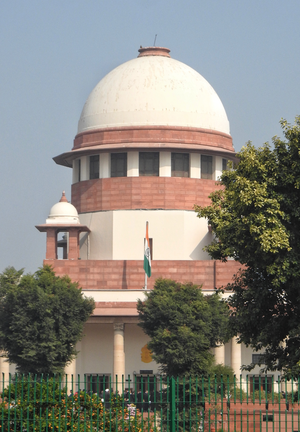

New Delhi, July 29 (IANS) The Supreme Court on Tuesday agreed to examine a public interest litigation (PIL) filed by the Indian Association of Physiotherapists (IAP) seeking effective implementation of the National Commission for Allied and Healthcare Professions Act, 2021 (NCAHP Act).
A Bench of Chief Justice of India (CJI) B.R. Gavai and K. Vinod Chandran took note of senior advocate Anindita Pujari’s submission that a regulatory vacuum persists in India’s allied healthcare sector, despite the NCAHP Act having been notified over four years ago.
The CJI Gavai-led Bench issued notices to the Centre, all state governments and union territories, National Commission for Allied and Healthcare Professions, University Grant Commission (UGC) and All India Council For Technical Education, and tagged the matter with a similar pending petition.
Filed under Article 32 of the Constitution, through advocate Rohit Kumar, the writ petition said that despite the NCAHP Act coming into force on May 25, 2021, several provisions remain unimplemented. In particular, many states have yet to constitute their respective State Allied and Healthcare Councils, leading to inconsistencies in professional standards, qualifications, and licensure processes across the country.
The petition argued that this lack of regulation continues to harm the quality of healthcare services and the professional standing of thousands of allied health professionals. These include physiotherapists, speech-language pathologists, radiologic technologists, medical lab technologists, and others who play vital roles in modern healthcare delivery.
It said, “This lack of implementation (of NCAHP Act) has resulted in significant inconsistencies in professional qualifications and unclear scopes of practice across the healthcare sector, negatively impacting the quality of healthcare services in India.”
The plea added that countries such as the UK, the US, Australia, and even Nepal have already implemented comprehensive regulatory frameworks for allied healthcare professions.
“In contrast, India has regrettably failed to implement such regulatory bodies, resulting in substandard quality of paramedical education, diagnostic, and clinical services in both private and government healthcare establishments, due to the absence of statutory requirements for accreditation, registration and licensing in the relevant professional streams,” contended the petition.
It added that the Union and state governments have failed to initiate certification and licensing mechanisms mandated under the NCAHP Act.
The PIL sought a writ of mandamus directing the Centre, states, and relevant regulatory bodies to implement the NCAHP Act in toto, including the creation of councils and the enforcement of standardised norms.
–IANS
pds/dpb
